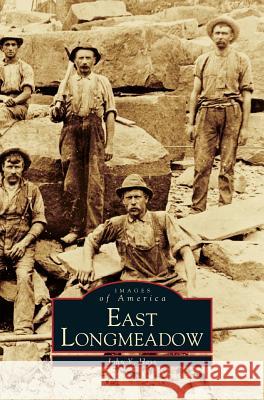East Longmeadow » książka
East Longmeadow
ISBN-13: 9781531602611 / Angielski / Twarda / 2000 / 130 str.
East Longmeadow was first known as the east village of Longmeadow, which was established in 1644. The name was derived from the great meadows along the Connecticut River that lie on the western edge of town. Scrub pine and sandy fields a few miles to the east separated East Village from the rest of town. The area's first settlers lived along the river, but the spring floods drove them to higher ground. Both East Village and Longmeadow were mostly agricultural areas. By the 1860s, East Village residents started to farm the land in their own town, and in 1894, East Longmeadow became a town of its own. Brown and red sandstone put the town of East Longmeadow on the map. Local farmers who found outcroppings of the stone on their land first used the stone for their house foundations and walkways. In 1875, large companies, such as Norcross Brothers and James & Marra Company, operated the quarries, employing hundreds of men. They hired Canadians and many Scandinavians who bought land in the town and built their own homes. The quarrying industry had its heyday until the first part of the 1900s.











